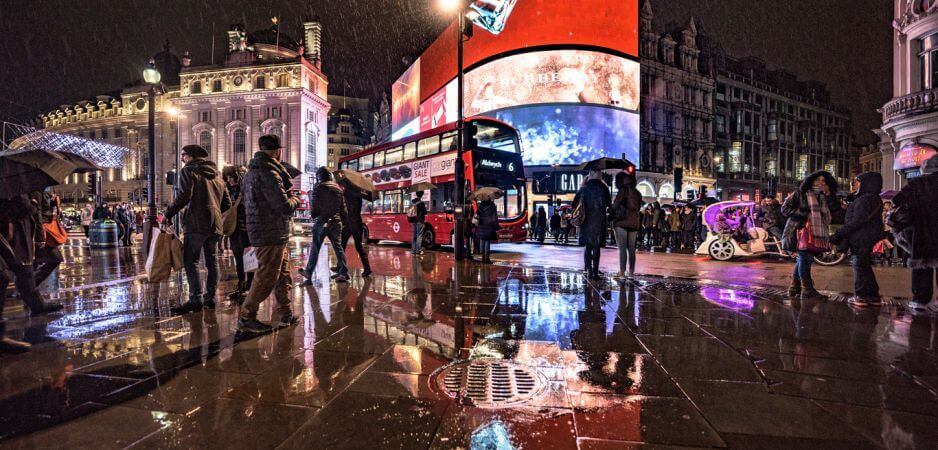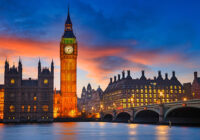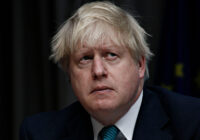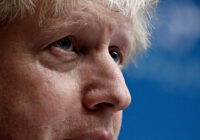The long and destructive campaign by the IRA not only hardened the citizens of London and Manchester, but increased their open-mindedness about how to deal with terrorism.
In the wake of the June 3 terror attacks in London, Mayor Sadiq Khan assured Londoners of their safety. He said this as part of a statement about the readiness of the police. He also tried to put this into the context of such attacks now being an unavoidable part of life in the world’s biggest cities.
Indeed, the response of the London police — and medical services — was superb. From the first emergency phone call to the shooting dead of the three attackers by special police units, there was a gap of eight minutes. The entire area London Bridge and Borough Market was flooded with police and ambulances immediately. Everything was part of an immensely-prepared plan, which is also part of life in urban cities.
Yet Mayor Khan had to endure not one, but two tweets of criticism from US President Donald Trump. It was as if Trump thought that a Muslim mayor would be an easy target. The response of Londoners was very much on the side of Khan, and there were huge displays of solidarity across the religious spectrum — as there were after the May 22 attack in Manchester.
Three terror attacks in three months, all perpetrated by insurgents with fundamentalist Islamic motives, and yet Londoners and Mancunians refused to enter a response by hysterics. Much like the French refused after suffering their own attacks in 2015 and 2016.
THE IRISH REPUBLICAN ARMY
Part of this is a long history of being attacked. In France, there were many post-war attacks by insurgents on both sides of the Algerian question. Carlos the Jackal tried to assassinate President Charles de Gaulle. In the United Kingdom, the long and very bloody and destructive campaign by the Irish Republican Army (IRA) not only hardened the citizens of London and Manchester, but arguably increased their open-mindedness about how to deal with terrorism.
Apart from a long list of atrocities in Northern Ireland, the attack of the IRA against the British mainland claimed a huge list of “successes” and near successes. Discounting the “minor” acts of violence, some of which took place within a block of where I lived or worked — at the level of bus bombs — the more spectacular attacks included the assassination of Lord Louis Mountbatten (1979); the assassination of Cabinet Minister Airey Neave, outside Parliament itself (1979); the attempted assassination of Prime Minister Margaret Thatcher by bombing her hotel in Brighton (1984); the mortar attack on Heathrow Airport (1994); the audacious mortar attack on 10 Downing Street while Prime Minister John Major was conducting a Cabinet meeting (1991); the rocket attack against the headquarters of the MI6 intelligence agency (2000); the city attacks using truck bombs against Manchester (1996) and London’s Canary Wharf financial district (1996), both causing damage of several hundred million pounds; these followed earlier city attacks against Manchester (1992) and the City of London’s Baltic Exchange in the financial district (1992); and these were in addition to the 1982 bomb attacks against military personnel in London’s Hyde Park and Regent’s Park.
This was despite a ferocious, sometimes literally no-prisoners-taken campaign in Northern Ireland by the British Army and Northern Irish Garda (police force). But no one in Manchester or London called for the imprisoning or deportation of the Irish. No one shunned Irish pubs. No one recoiled from sharing a bus seat with someone called Paddy.
In the end, the Northern Irish “problem” was “settled” as much by long and patient negotiation as by the use of force. The process was helped by foreign negotiators who were regarded as “honest brokers” on both sides: people like US Senate Majority Leader George Mitchell and former Finnish President Martti Ahtisaari. What became the Good Friday Agreement was the culmination of a torturous process in which neither Mitchell nor Ahtisaari lost patience, nor resorted to name-calling or cheap shots in any media. US conflict settlement diplomacy in Western Europe probably achieved its highest post-war regard under Mitchell, and we long for his like again.
Of course, there is no single Islamic organization with which to negotiate. Those that are engaged in war and violence seem to have no agenda but destruction and death. There seem to be huge qualitative differences between the Irish and the Islamic questions.
AN IRON GLOVE
There are two points here. The first is key to creating a climate for possible, even if distant negotiation. No one in England thought it was helpful or desirable to deport or imprison anyone called Patrick Fitzgerald. The second is that there are Muslim communities, civic and religious leaders, role models, and even pop idols and actors who can be mobilized in a way that they enter dialogue and, yes, negotiation, with the radical elements that dwell — often hidden, though also often suspected — in European communities.
Here is where a US president addicted to tweeting starts being marginally useful. The one thing that political and community leaders can’t do, but must learn to do, is master modern communications in the way the Islamic State and other groups can. The drama and persuasiveness — dare I say it, the moral message — of the videos, podcasts, sermons, websites and the black net all speak to a mastery not only of instruments of communication, but a mastery of how to pitch a message of rebellion against all odds and against an enemy in all its manifestations, and against an enemy at its weakest points.
The narrative that competes against this will not come from blanket condemnation, and not come from calls to expel Muslims or imprison them or ostracize them. Interning US Japanese did not help the war effort against Japan. You cannot kill or imprison ideas, but you can make them grow stronger by trying to kill and imprison them.
Mancunians and Londoners at least have reached the point not of turning the cheek — there was deep approval of the ruthless police response on the evening of June 3 — but of extending one hand while cloaking the other in an iron glove. The two go together but, in the true difficulties of a vexed and complex world, not both at once and not the iron glove alone.
In international terms, it means completing the defeat of the Islamic State, but it also means, although it seems it will not be led by the current US president, some long and unpleasant negotiations — with an iron glove nearby — in Saudi Arabia. That may be the missing piece in the terrible jigsaw of today’s violent world.
The views expressed in this article are the author’s own and do not necessarily reflect Fair Observer’s editorial policy.
Photo Credit: Eachat
Support Fair Observer
We rely on your support for our independence, diversity and quality.
For more than 10 years, Fair Observer has been free, fair and independent. No billionaire owns us, no advertisers control us. We are a reader-supported nonprofit. Unlike many other publications, we keep our content free for readers regardless of where they live or whether they can afford to pay. We have no paywalls and no ads.
In the post-truth era of fake news, echo chambers and filter bubbles, we publish a plurality of perspectives from around the world. Anyone can publish with us, but everyone goes through a rigorous editorial process. So, you get fact-checked, well-reasoned content instead of noise.
We publish 2,500+ voices from 90+ countries. We also conduct education and training programs
on subjects ranging from digital media and journalism to writing and critical thinking. This
doesn’t come cheap. Servers, editors, trainers and web developers cost
money.
Please consider supporting us on a regular basis as a recurring donor or a
sustaining member.
Will you support FO’s journalism?
We rely on your support for our independence, diversity and quality.






